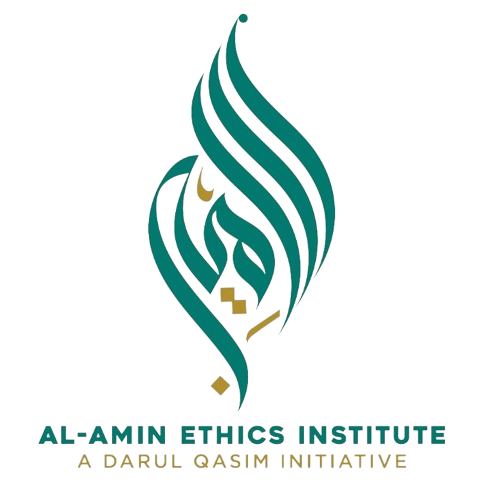The command iqraʾ (اقْرَأْ) given to the Prophet Muhammad ﷺ at the beginning of Sūrat al-ʿAlaq is frequently translated as a command to “read.” Through the illuminating insights of our ʿulamāʾ, we understand that iqraʾ is more than the act of reading text. It signifies the initiation of recitation, which itself is connected with nūr (spiritual light). When we consider this nūr in further detail, we understand its relationship with knowledge and the creative power of applying these principles to various realms of life. This brief essay explores the meaning of iqraʾ for the Prophet ﷺ, the additional depth provided by Shaykh Amīn Kholwadia’s teachings, and how these insights can guide one’s professional endeavors.
Based on the lecture Shaykh Amīn gave in class, we understand that iqraʾ (اقْرَأْ) did not simply mean “read” to the Prophet ﷺ. As highlighted in Tafsīr al-Jalālayn, there is no specified object in the command, signifying that the Prophet ﷺ was being instructed to initiate recitation itself. The Prophet’s ﷺ response, مَا أَنَا بِقَارِئٍ (mā ana bi-qāriʾ), reflected his initial inability to bear the sheer nūr of the Qurʾān. In response, Sayyidunā Jibrīl embraced him three times, transferring nūr to the Prophet ﷺ and granting him the capacity to bear the weight of revelation. This understanding of the account of revelation illustrates the necessity of nūr and divine facilitation as a requisite for engaging with revelation. The phrase اقْرَأْ بِاسْمِ رَبِّكَ الَّذِي خَلَقَ (iqraʾ bismi rabbika alladhī khalaq, “Recite in the name of your Lord, the One Who Creates”) further embeds within iqraʾ the concept of creation and creativity. The Prophet’s recitation not only conveys meaning but also brings into existence that which is guided, by Allah’s faḍl, to be created.
From Shaykh Amīn, we receive a robust framework for understanding the act of reading. A maxim for the act of reading is that rūḥānī nūr (imperfectly translated as spiritual light) takes priority over academic qualification. This is reflected in the example of the Prophet ﷺ curing the sick with recitation of the Qurʾān, or Imām Abū Ḥanīfah competently overseeing the construction of a bridge, despite not being an engineer. Nūr is the fundamental driver of the productive act of reading. It follows, then, that the acquisition of nūr is a prerequisite for reading. From Shaykh Amīn, we understand that the acquisition of nūr comes from Allah through worship of Him. Further, nūr is acquired by comprehensively following the example of the Prophet ﷺ, including his ethics and interpersonal conduct. Finally, nūr in the context of reading necessitates the acquisition of the appropriate skill set for that particular discipline. This applies both to matters of the sacred law (sharīʿah) and to matters of the cosmos (takwīn). Reading a medical case requires an understanding of anatomy, physiology, pathology, pharmacology, and other related disciplines. Likewise, reading the Qurʾān necessitates the appropriate knowledge of the Islamic sciences, including the Arabic language, the science of recitation, and the science of tafsīr (exegesis). The difference, of course, is that the former falls under the category of beneficial knowledge (ʿilm al-nāfiʿ), while the latter is supremely beneficial knowledge (ʿilm al-anfaʿ).
These insights help me to better situate myself in the work that I am doing as an ophthalmologist, or an eye doctor and surgeon. If I want to be an excellent ophthalmologist, I must be engaged with the process of acquiring nūr from ʿibādah, adherence to the Sunnah, and increasing my technical expertise in the field. With the guidance of Shaykh Amīn, I should strive to better understand the creative insights which can be gleaned from reciting the words of Allah. For example, in a literal sense, the entirety of the field of ophthalmology is connected with the perception and processing of physical light! I am very interested in knowing how nūr and the many references to Allah’s nūr can be connected with dispensing cure in the field of ophthalmology and in eye surgery. Without this pursuit of nūr, the work I am doing will be extremely limited and cut off from Allah’s barakah and faḍl. On the other hand, when my work is properly situated with its relationship with nūr, the possibilities for khayr are endless.
